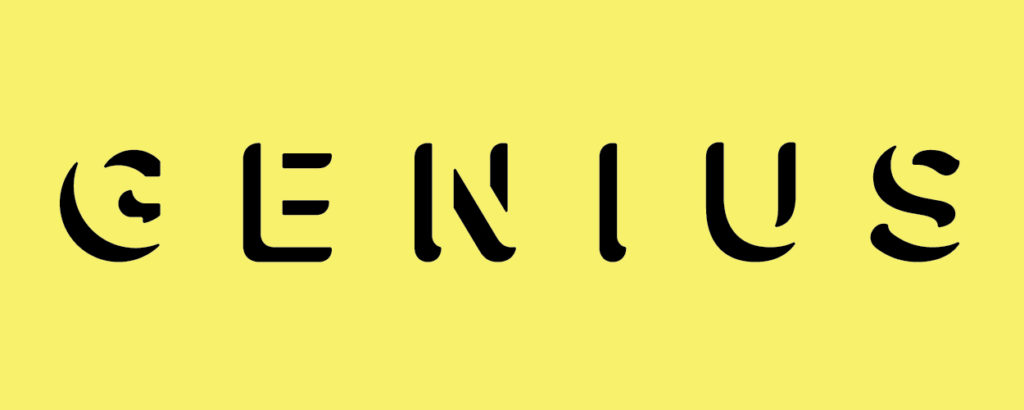This website uses cookies so that we can provide you with the best user experience possible. Cookie information is stored in your browser and performs functions such as recognising you when you return to our website and helping our team to understand which sections of the website you find most interesting and useful.
Business News Digital Legal Top Stories
Genius lyric-theft complaint against Google fails, because it’s a copyright case without a copyright owner
By Chris Cooke | Published on Wednesday 12 August 2020

A New York court has thrown out the lyric-theft lawsuit filed against Google by lyric site Genius, on the basis that – despite Genius suing Google for breach of contract – it was actually a copyright case without a copyright owner.
This legal battle centred on Google’s information boxes which pop up when you use the web giant’s search engine to search for a song or recording. These days that information box usually includes the lyrics of said song, above the actual search results that include links to other places on the internet where the lyrics might be published, like Genius.
Obviously that’s somewhat annoying for Genius et al. Though what was even more annoying was that Genius became convinced that some of the lyrics appearing in that information box had come from its website, despite Google claiming that it sourced the content via its licensing partnerships with various music publishers and the lyric aggregator LyricFind.
But, so convinced was Genius that lyrics from its site were being used in the Google info box, it started to employ some sneaky tactics, like the strategic use of different kinds of apostrophes so that morse code style messages would be secretly contained within the lyrics it published. And, lo and behold, those secret apostrophe-coded messages started popping up on Google.
This posed two questions. First, where in Google’s lyric supply chain were people cutting and pasting lyrics from the Genius site, rather than transcribing them afresh. And second, was there anything Genius could do about this legally speaking.
Obviously copyright protects lyrics, but that protection belongs to the copyright owner, which is the songwriter or any publisher the writer has assigned their rights to. Genius does not own the copyright in the lyrics.
And even if you suggest that the transcription of said lyrics should create a new lyrical copyright, that would be a derivative work, and the creation of such works requires the specific permission of the owner of the original copyright, which Genius did not have.
So, beyond seeking to embarrass Google in the press – which is what Genius did first – was their anything the lyric site’s lawyers could do. Well, they decided to have a go, mainly by arguing that grabbing lyrics off the Genius website breached the terms and conditions of said site, and therefore Google was in breach of contract. They also threw in some claims for unfair competition and unjust enrichment, citing state laws in both California and New York.
For its part, Google argued that this was, in fact, a copyright case in disguise. That actually required that the whole lawsuit be shifted from a state court to a federal court, where copyright matters are considered in the US. Google, of course, knew that if it could get a judge to agree that the real claim here was copyright infringement, then it would be fine, because Genius didn’t own any of the copyrights that were alleged to have been infringed.
And once the case was in the federal court, Google’s arguments prevailed. “Plaintiff asserts that its contract rights for use of the lyrics transcriptions are ‘separate and apart’ from the copyright owners’ exclusive rights in the lyrics”, the judge noted.
However, she added, what Genius is really saying is that its transcriptions are derivative works: “Plaintiff’s argument is, in essence, that it has created a derivative work of the original lyrics in applying its own labour and resources to transcribe the lyrics, and thus, retains some ownership over and has rights in the transcriptions distinct from the exclusive rights of the copyright owners”.
But “plaintiff likely makes this argument without explicitly referring to the lyrics transcriptions as derivative works because the case law is clear that only the original copyright owner has exclusive rights to authorise derivative works”.
So, basically, the Genius terms and conditions Google is accused of breaching all relate to copyright infringement, so this is a federal law copyright case not a state law contract case, but Genius can’t pursue that case because it’s not the copyright owner.
Therefore, wrote the judge, “given that the court finds that all of plaintiff’s state law claims are preempted by the Copyright Act, and plaintiff has not asserted any federal law claims, the court dismisses the complaint for failure to state a claim”.
We await to see how Genius respond.





